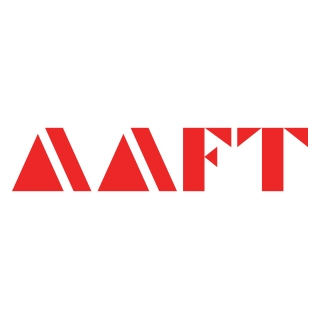Film Making Courses After 12th: Course Details, Fees, and Eligibility 2025
This blog is all about a detailed guide for students interested in pursuing a filmmaking career after 12th standard. It explains the different educational paths available, including diploma courses, bachelor’s, and master’s degrees, focusing on key areas like directing, cinematography, scriptwriting, editing, and sound design. The blog also covers what qualifications are needed, the types of courses offered, and the main topics each course will cover.
Choosing a career path after completing your 12th standard is a pivotal decision that shapes your future. For those with a passion for storytelling through visuals, filmmaking courses offer a gateway to a thrilling and creatively fulfilling career. This comprehensive guide will provide you with an in-depth look at filmmaking courses after the 12th, detailing course structures, fee schedules, eligibility criteria, and the diverse career opportunities they can lead to in 2024.
Read Also: Difference Between Screenwriting and Scriptwriting
What is Film Making?
Film making is the art and craft of creating visual narratives that communicate ideas, stories, and emotions through a sequence of moving images. It encompasses a range of disciplines including directing, cinematography, editing, scriptwriting, and sound design, among others. As a filmmaker, you get the opportunity to express yourself artistically and influence audiences worldwide.
Why Choose Film Making Courses?
The film industry is a significant part of the global entertainment sector, offering vast opportunities for creative expression and innovation. With the advent of digital media, the demand for skilled filmmakers who can create content for various platforms, including cinema, television, and online streaming services, is rising. By studying film making, you can gain the necessary skills and knowledge to contribute to this dynamic industry.
Do you want free career counseling?
Ignite Your Ambitions- Seize the Opportunity for a Free Career Counseling Session.
- 30+ Years in Education
- 250+ Faculties
- 30K+ Alumni Network
- 10th in World Ranking
- 1000+ Celebrity
- 120+ Countries Students Enrolled
Read Also: Who is a Film Production Manager | Roles, Scopes, Salary?
Eligibility for Film Making Courses After 12th
- Educational Requirement: Most filmmaking courses require candidates to have completed their 12th standard from any recognized board. This requirement is irrespective of the stream (Science, Commerce, or Arts).
- Entrance Exams: Some prestigious institutions may require students to pass an entrance exam that tests their general aptitude, creativity, and understanding of media. These could include specific tests conducted by individual institutions or more generalized entrance exams.
- Personal Interview and Portfolio: Certain programs might also include a personal interview and require a portfolio that can include anything from written scripts, videos made, or photography portfolios to showcase your creative abilities.
Types of Film-Making Courses
- Diploma Courses: These courses are typically one to two years long and focus on practical aspects of film making, such as basic camera operations, editing techniques, and fundamental storytelling principles. Diploma courses are ideal for those looking to quickly jumpstart their careers in the film industry.
- Bachelor’s Degree: Bachelor of Arts (BA) in Film and Television or Bachelor of Fine Arts (BFA) in Film Making are comprehensive three to four-year programs that provide extensive training in all technical and creative aspects of film production. These programs often include workshops, live projects, and internships to give students a holistic understanding of the film industry.
- Master’s Degree: Master’s programs, such as a Master of Fine Arts (MFA) in Film Making, delve deeper into specialized areas like film theory, advanced directing, and cinematography. These courses are typically two years long and are suitable for those looking to refine specific skills or pursue academic research in film studies.
Read Also: List of Best Screenwriting Software in 2024
Key Areas of Study in Film-Making Courses
- Directing: Students learn about the nuances of directing, including how to interpret a script, work with actors, and coordinate with the crew to realize a cinematic vision effectively.
- Cinematography: This area focuses on teaching students about camera types, lens choice, lighting setups, shot composition, and movement to create visually compelling narratives.
- Scriptwriting: Courses in scriptwriting teach students how to develop plots, create complex characters, and write dialogues that resonate with audiences. It also covers different script formats for film, television, and the web.
- Editing: Students learn about different editing software and techniques to create seamless transitions, maintain pacing, and enhance storytelling through the artful assembly of footage.
- Sound Design: This involves training in capturing, manipulating, and integrating sound elements that complement the visual storytelling in a film, including background scores, sound effects, and sync sound.
Filmmaking Course Fee in India
In India, filmmaking course fees depend on the program’s level. Degree programs (Bachelor’s) typically range from ₹3 lakhs to ₹10 lakhs annually. Diploma programs offer a focused curriculum at a more accessible cost (₹50,000 – ₹3 lakhs). Certificate courses provide a quick introduction (₹1,000 – ₹4 lakhs). Choose a program based on your budget, career goals, and the institute’s reputation and facilities.
Book Now →
Read Also: Lights, Camera, AI: How AI is Transforming Filmmaking
Career Opportunities in Filmmaking in India
- Film Director: Film Directors are at the helm of the creative aspects of a film, guiding both the crew and the actors to bring their vision to life. In India, directors’ salaries vary widely based on experience and the film’s budget, generally ranging from INR 10 lakhs to over INR 1 crore annually.
- Cinematographer: Known as directors of photography, cinematographers manage the visual elements of a film. Their earnings in India typically range from INR 5 lakhs to INR 75 lakhs per year, depending on the project’s scale and their experience.
- Screenwriter: Screenwriters craft the scripts that films are based on. In India, earnings can vary greatly, with starting salaries typically ranging from INR 3 lakhs to INR 20 lakhs per script, depending on the market and individual experience.
- Film Editor: Editors play a critical role in the post-production process, assembling the final cut of the film. Their annual salaries in India range from INR 2 lakhs to INR 15 lakhs, depending on their expertise and the projects they undertake.
- Sound Designer: Sound designers work on the auditory elements of a film. In India, their earnings can range from INR 2 lakhs to INR 10 lakhs per year, which varies based on their role in the project and the production scale.
- Producer: Producers manage the overall production of a film, from its inception to its distribution. They handle budgets, schedules, and logistics. In India, producers’ earnings range widely, from INR 10 lakhs to several crores per project, particularly if they are working on big-budget films.
Read Also: A Beginner’s Guide to Post-Production for Filmmakers
Conclusion
Film making is an exciting career choice that offers extensive creative expression. As the entertainment industry continues to expand globally, the demand for skilled film professionals is expected to grow. By selecting the right course after your 12th, you can embark on a journey that not only fulfills your creative aspirations but also opens up a plethora of professional opportunities. Whether your goal is to tell stories that inspire, entertain, or provoke thought, a career in filmmaking can be incredibly rewarding. Explore the range of filmmaking programs at AAFT, where we provide the tools, training, and network to jumpstart your career in this dynamic industry.
Do you want free career counseling?
Ignite Your Ambitions- Seize the Opportunity for a Free Career Counseling Session.Faq
What are the basic eligibility criteria for enrolling in a film making course?
The primary requirement is completion of the 12th standard from a recognized board. Although no specific stream is mandatory, a background in arts or media studies can be beneficial. Some institutions may also require clearing an entrance exam or presenting a creative portfolio during the admissions process.
What types of film making courses are available after the 12th?
There are three main types of film making courses: Diploma courses, which are short and focused; Bachelor’s degrees, which offer comprehensive training and typically last three to four years; and Master’s degrees, for those interested in specialized advanced studies.
How much does it cost to pursue a film making course?
Fees can vary widely depending on the institution and the type of program. Generally, diploma courses might cost between INR 1 lakh to 2 lakhs per year, while degree courses could range from INR 2 lakhs to 5 lakhs per year. Elite institutions or specialized programs may have higher fees.
What key areas are studied in film making courses?
Students will learn about directing, cinematography, scriptwriting, editing, and sound design. Each area focuses on different aspects of film production, from conceptualizing a story to the technical details of capturing and editing footage.
What are the benefits of pursuing a film making course?
Pursuing a film making course offers the benefit of learning professional skills in storytelling, technical aspects of film production, and the business of film, all of which are essential for a successful career in the dynamic film industry.
How competitive is admission into film making programs?
Admission competitiveness can vary widely from one institution to another. Programs at well-known film schools or universities with strong industry connections may be more competitive due to their reputation and the career prospects they offer.

AAFT has been providing the world with limitless creativity and expression since 1993! Through a dynamic and industry-driven curriculum, AAFT provides engaging and captivating articles to persuasive blogs and empowers its readers to explore diverse avenues of creative media education-related content.






